- Home
- Helen Dunmore
Inside the Wave Page 2
Inside the Wave Read online
Page 2
As if the driver had drawn them
Onto the straight, and left them perfect
And in the next-to-one carriage
Less crowded than our own
A bare leg stretched into the aisle
Taking up room
As if this were a beach in summer.
We studied the delicate anatomy
Of shin and knee
The putting together and planting
Of toe and heel
The tension of thigh,
And beyond it nothing
For the body was hidden
By the bulk of a boy
Inopportunely leaning
To adjust his headphones.
As if this were a beach in summer
The leg took its own time
And flexed luxuriously
While the signal held against us
And delay surged into time
Lost, irrecoverable.
The driver told us again
We would be on the move shortly
But no one believed him.
This was what we had always known
Was about to happen: the calf tightening
The vessel of the hip cupping
The thrust of the bare leg,
The naked precision of the human
As it steps into action,
And down the long corridor, swaying
As the train resumed,
The chant, the murmur
Of foot soles, someone
Merely walking into the next room.
The Place of Ordinary Souls
In such meadows the days pass
Without shadow, unremarkable.
On time, the bus pants at its halt,
Passengers peel their thighs
From hot vinyl, and step down.
Swift-heeled Achilles strides
Through the fields of asphodel
Flanked by heroes and warriors
Who have left their mark on the earth
And want nothing to do with us.
With impatient glance at the starry fields
And kit on their backs, they’re gone
Route-marching to Elysium
Where the gods are at home.
We are glad to see the back of them.
In the fields of asphodel we dawdle
Towards the rumour of a beauty spot
Which turns out to be shut.
No matter. Why not get out the picnic
And see if the tea’s still hot?
The bus shuttles all day long
With its cargo of ordinary souls.
We lie on our backs, eyes closed,
Dreaming of nothing while clouds pass.
(According to Greek legend, ordinary, unheroic souls pass the afterlife in the fields of asphodel.)
My daughter as Penelope
Seven years old last birthday,
With waist-length hair,
White tunic, yellow ribbon
Threaded at neck and hem,
She has learned her lines,
The chalked-in positions,
The music which means
She must come out of the wings.
In the dusty cave of the theatre
The children’s bare feet patter.
My daughter thrusts out her arm
And beats her suitors,
In pride at the laughter
She forgets the pause,
But chides them, berates them
Like an abandoned woman
Who has over cold years learned
To preserve the hearth.
Odysseus, so long expected
Would scarcely be welcome –
A man of many distractions
At this very moment
Oblivious of her
Conjuring the dead with blood.
My daughter as Penelope
Shakes back her hair and cries
That they should all go home
Here they will get nothing,
While the little capering boys
Evade her blows.
I made her tunic, I threaded
Those ribbons at neck and hem,
I brushed and loosened her hair.
She leaned against my shoulder
In pure naïvety. ‘I didn’t know
You could make anything
As good as this,’ she said.
The theatre swallowed the child.
We thought they were too young for it,
They would freeze, or be afraid,
But they were blithe, barefoot,
Running from the underworld
To butt like kids against the white sheet
That marked the kingdom of the dead.
The skin rose on our arms
The hairs prickled. They’d gone.
My daughter as Penelope
Seven years old, thrusting
Her bare arm out of her chiton
Pushing away her suitors
As one may do in childhood.
The sheet quivered
For the dead could barely contain
Their desire for the living
And the play was long.
The cave of the stage grew vast –
A mouth without a tongue
Consuming our children.
The Lamplighter
Here, where the old Industrial School was
And then the porn-film sheds,
Stands the last lamp before the water.
Dead as he’s been these ninety years
The lamplighter on his beat
Walks with ladder on shoulder.
Above the Mardyke Steps and the donkey track
He fixes ladder to pole, stands back
Then climbs nimbly into the mass of flower.
His head is a ball of petals. He barely coughs
As the soft skin of petunia
Plasters itself against his nostrils.
Now he takes up his torch
Tips the lever and touches the gas.
A big rude flower, a dahlia
Blooms in its case.
There are boys slouched against the wall
Up to no good, there are white-faced girls
Running to the shop for a paper of chips.
There’s the long fall of the Mardyke Steps
Tunneling the bad way to the docks
And so the lamplighters muster
To stop the thieves who can knock you down
Between one lamp and the next,
Between one step and the drop.
The Halt
We stop somewhere on the plain
While I am sleeping. As my book slips
The man opposite leans to stop it
Still chomping that sausage he cut
With a penknife opened and cleaned
On his sleeve, long before I slept.
He pulls down the window-strap and at once
We hear birds scurry in the scrub
That bows and knits to the cuff of the wind.
I turn my face to the glass
For I speak his language painfully
Sentence by sentence, and he will talk to me.
We have halted for no reason
In the white glare of noon
At this shack surrounded by sunflowers
Pothering hens and a plot of maize
Beyond which the land gallops unbroken.
There is also a woman
Who swings a bucket on her arm
As she clambers the makeshift platform
Box upon box, skilfully placed.
She knows all the long curve of the train.
Now from the engine a stoker swings
A stream of water that dings on the iron.
The rails flash so I can barely look at them.
Our engine shucks steam as it canters
Panting, pulling against the brake.
The bucket clangs. The woman steps down.
From my sticky mouth the words come:
Her bowed head and the way she waits.
Bluebell Hollows
Are they blue or not blue?
All I know is the smoke
That moves under the trees,
In Tremenheere Woods
Moths clung to the sheet,
It was the hour of innocence –
We developed flowers
On light-sensitive paper:
They are still here.
We could never walk fast enough,
Seven year olds
Up in the dead of night
Climbing to the lookout
Where bonfires blazed
For reasons long forgotten,
But perhaps because the Romans
Once came this far
To walk the bluebell hollows.
A Loose Curl
I have never known you easily
Hold my hand as you do now.
We sit here for hours.
There’s salt all over the glass
And however I look to the horizon
Not a sail to be seen.
I hold your hand and say nothing.
Once I must have held
Your finger, a loose curl.
You remember in snatches.
You say you’re afraid of a whale
Snorkelling through the blue Arctic.
The ice is so fragile.
You must spread your weight, like this
And inch out to the abyss.
This is not a glacier, it’s only
A world of ice falling apart.
I think something is moving slowly
Deep in your fingers.
The sea stays in its lair
But wants to be where we are.
Hornsea, 1952
…I by the tide
Of Humber would complain…
Yes, but were we happy then?
The wind blew from the east, you were always cold,
And there was a boating lake –
Water trapped on your left, below sea level,
Murkily waiting to be stirred by boys with sticks.
You and I must have been conspirators
All those cold days. The two of us.
No books, no essays, no bike propped up
In happy rush. No clangour of bells
Or notes in pigeon-holes:
I can’t wait for you, my darling.
Huge planes take off
Overhead into loneliness,
You bake sponge cakes at four o’clock
For belated homecomings –
Men drink in the Mess.
The fortune-teller saw you kneel
Beside your trunk, packing, unpacking.
The hour for scholarship came round again:
You won. You win
And write Oxford on labels
Flowingly, beneath your name.
A small child drags at your hand.
Another pushes out your belly-button.
You haul at the pram.
The two of us. How the wind blows.
You lose one child and you keep one.
You will change your accent for no one.
You could write an essay on this:
A sozzled officer slow to come home,
Marvell’s vegetable kingdom,
World enough and time,
Another baby fattening
And your thirtieth birthday on the horizon.
Festival of stone
(for Jitka Palmer)
The chink of hammers is a song
Like blackbirds interrupted, alarming
One another in the beauty of the morning
Over the thud of mallets, raspings on stone
As the sculptors bend and sweat
And the skirts of the tents blow out.
The chink of hammers is the wind that plays
On plane leaves keyed to a ripple
In the updraught from the water
And all is flash and shatter
As the surface breaks open
To show the face of the stone.
A Bit of Love
He must stir himself. No more hiding
Behind the skill of hands
That are not his.
Those nurses are good girls.
They’ll do anything for you –
Within reason of course.
He must fumble his old fingers
Get himself moving –
They all say this.
Ambulance bells carouse
Until he doesn’t know where he is.
Drunks in the street
Swaying about like Holy Moses
That’s about the size of it:
No one listens.
The lamplighter went home years ago
There’s no night policeman
Or dawn milk-chink.
That stout world is a trinket
In the eyes of his grandchildren.
His shifts are over.
Here’s a bit of paper
And a book to lean on
What more does he want?
In his well-taught hand-writing
He’ll send her a bit of love
To make her blush.
Winter Balcony with Dunnocks
Close to the earth, creeping, lowly
Mouse-coloured, unglamorous
Dunnocks, your dusty wings flirt
In the dry roots of ivy, you are unnoted
Untweeted creatures, you turn
Dry leaves and peck for grubs.
You come to my balcony, a cloud of you
Eight floors up and slender-dark
Tilting your wings to skirt the railing
And flicker among the geraniums
As the winter cold comes on –
Quick, quick, against the dusk.
You don’t care that someone was here
Before you: those two fat pigeons
Dumpily purring, the noisy ones
Who think I can’t see where they slump
Between flower-pot and plastic bucket
Breast to breast, at roost –
No, you are too quick-dark
On the rim of night, flickering
Through the chill buds of the camellia,
Unnoted, untweeted creatures,
Dunnocks, foraging
December and the year’s husk.
Mimosa
Why is the mimosa here
Inside its dark frame?
So down-to-earth, it comes out workmanlike
Year after year, breaks its own branches
With plumes that make the sky quiver.
Let’s sit here, on the bench, under it
To rest while you get your breath.
Winter’s over, and look, in this dustbin
Someone has planted wallflowers.
There’s pollen all over your arms.
Nightfall in the IKEA Kitchen
Nightfall in the IKEA kitchen.
Even though the lights are left on
I feel the push of the wind’s deconstruction
Take the hull of the shed by storm.
Creak and strain of test and fault-finding
But here in the glow I am alone
Expected and consoled. Here is the notice board
Riddled with reminders and invitations,
Here are picture ledges and high cabinets
Kitchen trolley, drying racks
A sly shoe cabinet, fabric pocket-ties:
A life so sweetly cupboarded
I barely believe it is mine. Open
And another light comes on.
Here is the place where I begin again
As a twenty-three year old Finn
Taking the keys of her first home.
I use space well here. I waste nothing.
The floor clock has shelves, the bed lifts up
And if I yield and sleep
I will become part of the storage system
Harb
ouring dreams and heat.
Everything is a little below scale
And therefore ample. Stuva, Dröma
Expedit, Tromsø, Isfjorden…
I rock in the peace of their names
Even as I mispronounce them
For this is nightfall in the one-bedroom
Model apartment’s kitchen
When everyone has gone home
And there is nothing left
But the Marketplace itself.
And say a child is born, no problem.
With a simple room-divider
I can create not only child storage
But also a home office
From which I will provide for us both.
Look, here is his football on the floor
And here a shelf where it may be stored.
His whole life is in these drawers.
Call him Billy and see him run.
When he grows up and moves out
Just take down the partition
To have, at last, my own space again.
Ten thousand times the wind has pushed the doors
But they have not opened yet.
Those cupboards. Stockholm. Yes, that green
Nature can never quite get.
The Duration
Here they are are on the beach where the boy played

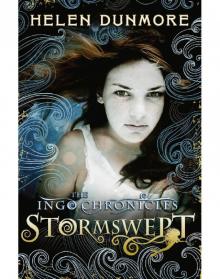 The Ingo Chronicles: Stormswept
The Ingo Chronicles: Stormswept The Deep
The Deep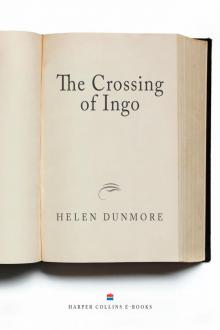 The Crossing of Ingo
The Crossing of Ingo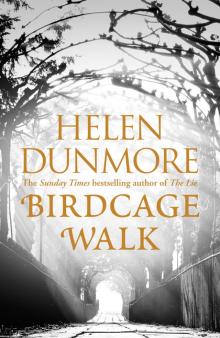 Birdcage Walk
Birdcage Walk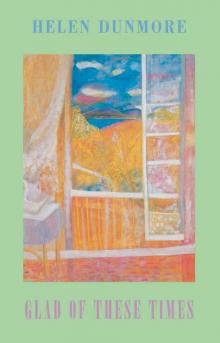 Glad of These Times
Glad of These Times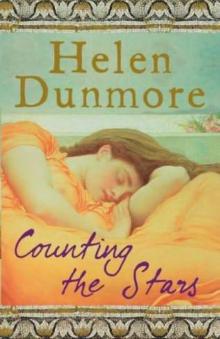 Counting the Stars
Counting the Stars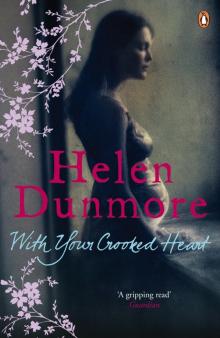 With Your Crooked Heart
With Your Crooked Heart Burning Bright
Burning Bright House of Orphans
House of Orphans Mourning Ruby
Mourning Ruby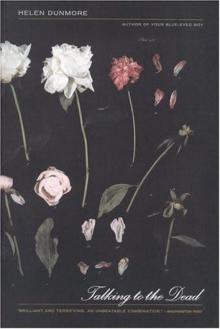 Talking to the Dead
Talking to the Dead Exposure
Exposure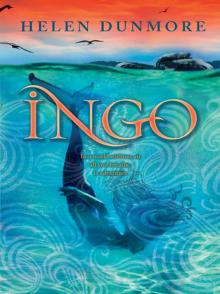 Ingo
Ingo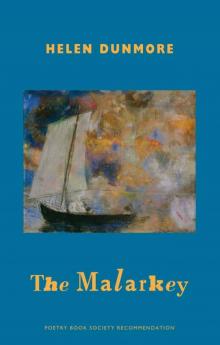 The Malarkey
The Malarkey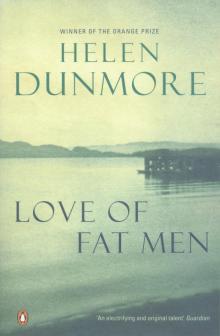 Love of Fat Men
Love of Fat Men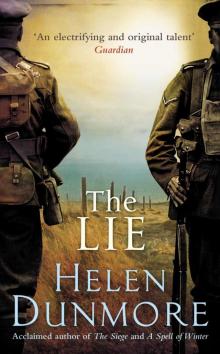 The Lie
The Lie The Siege
The Siege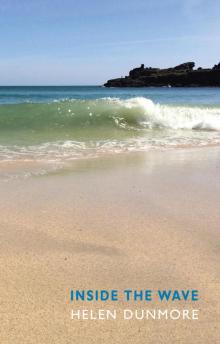 Inside the Wave
Inside the Wave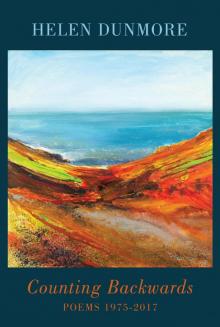 Counting Backwards
Counting Backwards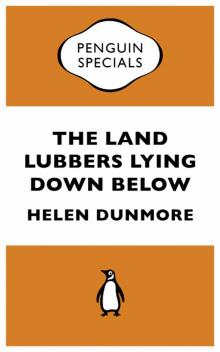 The Land Lubbers Lying Down Below (Penguin Specials)
The Land Lubbers Lying Down Below (Penguin Specials)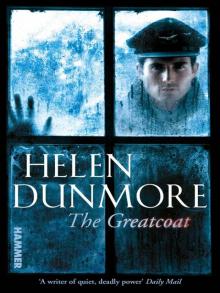 The Greatcoat
The Greatcoat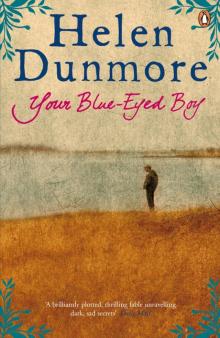 Your Blue Eyed Boy
Your Blue Eyed Boy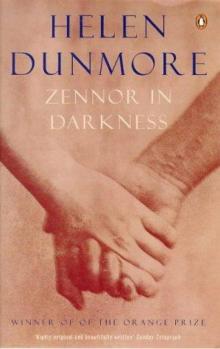 Zennor in Darkness
Zennor in Darkness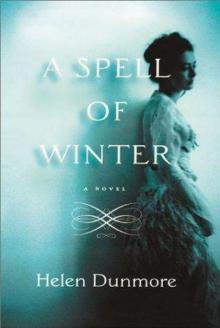 Spell of Winter
Spell of Winter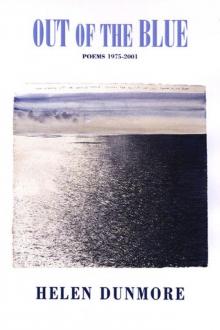 Out of the Blue: Poems 1975-2001
Out of the Blue: Poems 1975-2001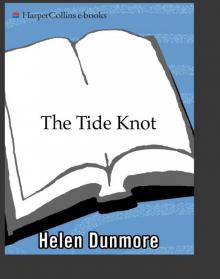 Tide Knot
Tide Knot The Betrayal
The Betrayal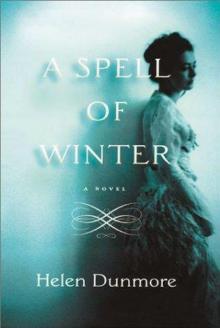 A Spell of Winter
A Spell of Winter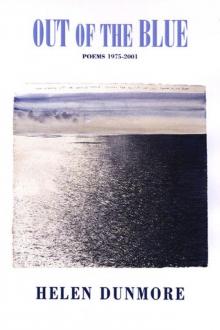 Out of the Blue
Out of the Blue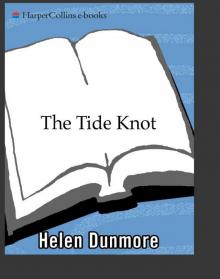 The Tide Knot
The Tide Knot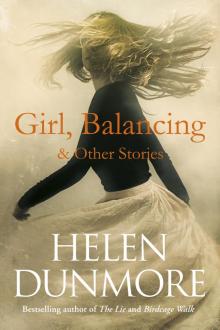 Girl, Balancing & Other Stories
Girl, Balancing & Other Stories Betrayal
Betrayal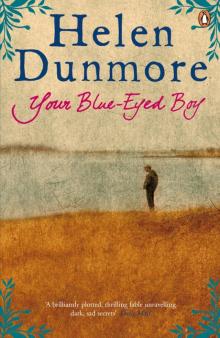 Your Blue-Eyed Boy
Your Blue-Eyed Boy